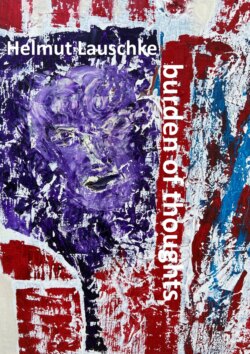Читать книгу Burden of thoughts - Helmut Lauschke - Страница 9
Being able to ask wisely is half the story.
Оглавление(Francis Bacon 1561-1626) Quotes: Not the lucky ones are grateful; it is the grateful who are happy. In the theater of human life, only God and the angels are allowed to be spectators. Nothing is more damaging to a state than that the clever are considered smart. The best attitude towards evil is not to want to do it. Good attitudes alone, while pleasing to God, are of little more value to the general public than good dreams unless they are translated into action.
Whether from the front or from the back, the question must be understandable, because the core of the matter must be peeled out and grasped. Big or small, the story as it is is always fine when the contents are freed from the ballast of the thick shell.
Asking wisely, that is to put the asymptote close to the circle of things, is the targeted focus of the thought on the crux of the matter, is the sharpness of the sense of proportion on the meeting point in the palette, where thing and thought correspond and are compatible on the plateau of being.
Asking questions is often the decisive and big thing in comparison to the answer, which is usually smaller in size and lighter in weight of the content and leaves open what should be closed on problem-related. So asking questions in propriety is an art that is followed by the answer.
This gives reason for the thinker to speak of the ‘half’ truth, which is perceived in its entirety and sought and held up. Truth also takes precedence over prudence, as it is resistant to any manipulation and at its core is sublime and invulnerable.
The question triggers, it points to the future, and the water flows, the answer brings the contradiction and with it the doubt. Doubt comes from thought as the philosophical magnet that questions what was recognized as useful and therefore correct.
Neither in questions nor in answers there is unambiguousness because everything, when it is thing-like, has its light and dark side. The spirit in the idea stands above the opposite of the sides, because with it there is no shadow side in the brightness of the light.
Because everything people do is incomplete and fragile, the question of correctness and permanence takes its right. On the other hand, in the imperfection lies the dynamic of the correction, to do better what is flawed, to secure it against temporality.
The object-like relation of the question to life is thus transient, which does not diminish the importance of the question at the right time. Everything is subject to the philosophy of thinking and rethinking, as long as the striving for truth is human in man.
New comes because old goes, because every gap requires filling, in doing with the hands as in doing thinking and knowing. The time has come and awaits the correction in human action in order to approach the full truth in the being of thinking and doing.
There is the question that remains to be asked, what temporality comes to the moment that illuminates in a flash of inspiration the resolution of the problem of the thinking cell, that shines what has been searched in vain over the years and researched with methods of high technical performance.
Ultimately, the prudence in asking the question on the second level in the approach of the sentence in the intellectual linguistic profile remains reserved. Nothing is perfect what a person thinks, deduces and does in the differential, so nothing is perfect what is in front of the eye and forms the thought.
